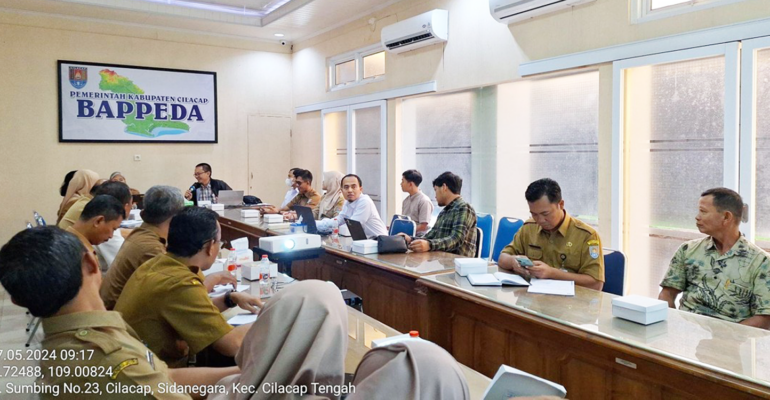IPB University Experts Provide Institutional Strengthening and Preparation of the Cilacap Biomass Cofiring Ecosystem Working Group

Dr Soni Trison who is a team of Surfactant and Bioenergy Research Center (SBRC) Experts as well as the President of the Department of Forest Management at IPB University became the leader of the Cilacap Biomass Cofiring Ecosystem Institutional Strengthening Implementation activity held on Sunday, 26/5 at Cilibang Village Hall, Jeruklegi District and Keleng Village Hall, Kesugihan District.
The activity was continued with the preparation of the Cilacap Biomass Ecosystem Working Group (Pokja) on Monday, 27/5, at the Cilacap Regional Development Planning Agency (BAPPEDA) Office.
Dr Soni revealed that this program has a big goal to improve the village economy through the concept of biomass agroforestry integrated with the management of Village-Owned Enterprises (Bumdes).
He emphasized the importance of training for farmer groups that will cooperate with Bumdes. “This training aims to strengthen the biomass ecosystem institution so that farmer groups, Bumdes, and other parties are independent in implementing this program in the future,” he added
Dr Soni also explained that institutional strengthening in building biomass ecosystems is the first step so that the relationship between the parties is more reliable in carrying out their various roles.
“Institutionalization is one of the important factors in building a biomass ecosystem, so it needs to be strengthened and even increased in class and capacity for each party, be it the Farmer Group or village-owned enterprise,” said Dr Soni.
Dr Soni said that the Biomass Cofiring Program in Cilacap is a pilot project that will become a national reference and will be replicated in other Steam Power Plant (PLTU) locations in Indonesia. Therefore, it is necessary to arrange and form working groups and what roles can be carried out to support the running of the program properly.
“Biomass Cofiring by planting gamal can be collaborated with other plants such as coffee as shade and gamal leaves can be used for goat feed, this can be used for the development of interesting agro-tourism and will increase the number of visits due to agro-tourism,” he said.
He revealed that the preparation of the Biomass Cofiring Ecosystem Working Group aims to form a collaborative scheme between agencies that are considered to have a positive role in the sustainability of the Biomass Cofiring program.
“With this program, it is hoped that the villages participating in this program can become successful examples of collaboration between the State Electricity Company (PLN) and the community in managing village potential based on agroforestry businesses in the form of biomass ecosystems while improving economic welfare for the local community,” he concluded. (IAAS/STD)



